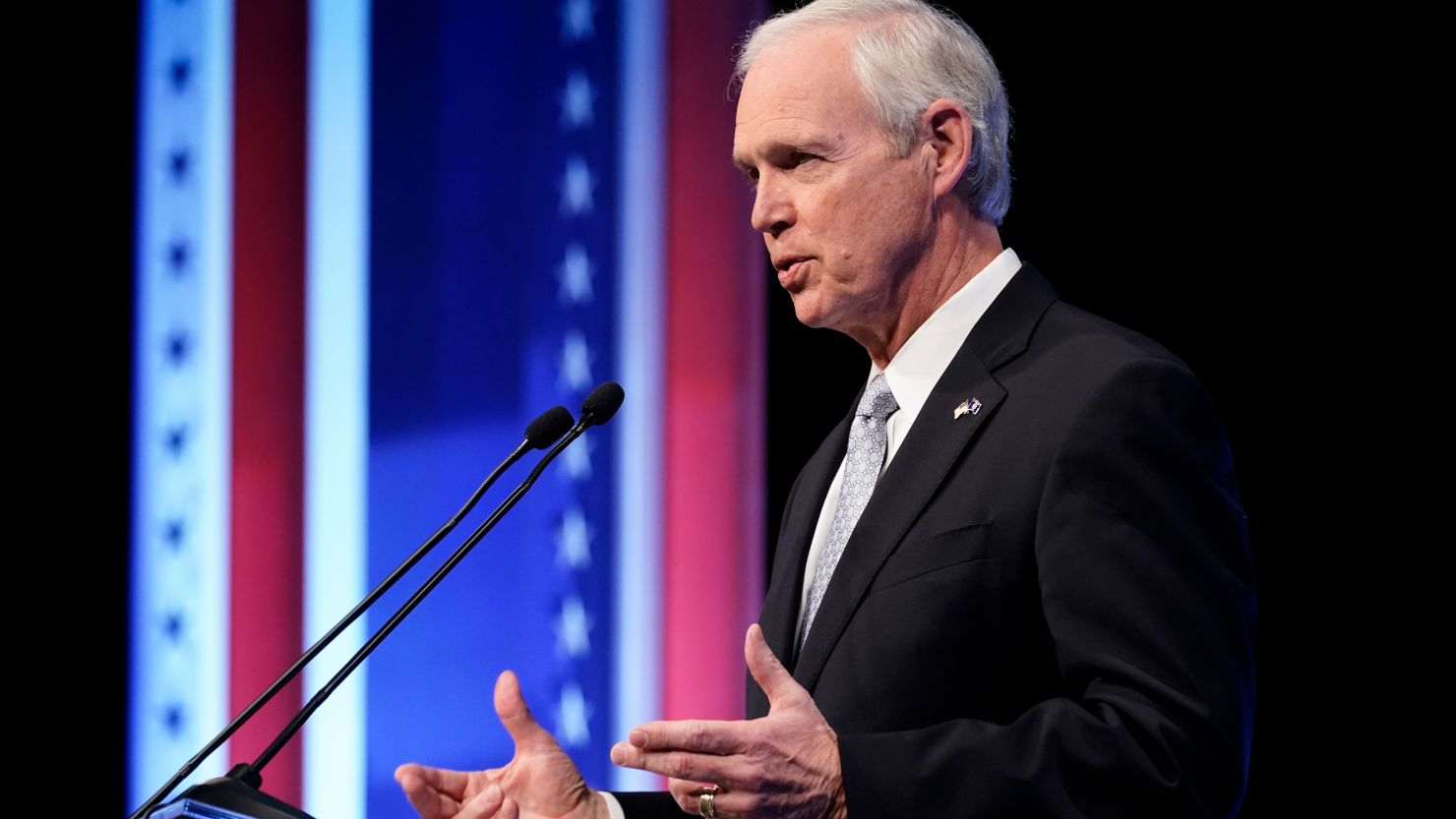Wisconsin GOP Sen. Ron Johnson was asked a simple question on the campaign trail this week: Would he commit to accepting the results of next week’s midterm elections?
His answer was anything but simple.
“I sure hope I can, but I can’t predict what the Democrats might have planned,” Johnson said. “You know, we’re not trying to do anything to gain partisan advantage, we’re just doing whatever we can to restore confidence. It sure seems like there’s an awful lot of, in the past, a lot of attempts on the part of Democrats to make it easier to cheat.”
Which is not “yes.” Or anything close to it.
Johnson, who is running for reelection against Democratic Lt. Gov. Mandela Barnes, offered no actual evidence to back up his claim that there had been “a lot of attempts on the part of Democrats to make it easier to cheat.”
Johnson was asked the question, at least in part, because on Thursday a top Milwaukee election official was fired after allegedly requesting military ballots for fake voters and sending them to a Republican state lawmaker.
This is far from the only time over the last few years that Johnson has dabbled in conspiracy theories. Consider:
* Johnson suggested that House Speaker Nancy Pelosi (and House Democrats) voted to impeach Donald Trump for his role in the January 6, 2021, riot at the US Capitol as a way to cover up her own culpability for what happened that day. (There’s no evidence to back up that claim.)
* Johnson said that he saw no evidence that January 6 was an “armed insurrection.” (There’s lot of evidence it was.)
* In a Senate hearing on the Capitol attack, Johnson read excerpts of a piece by J. Michael Waller, which ran in The Federalist on January 14, 2021, claiming that “a small number of cadre appeared to use the cover of a huge rally to stage its attack,” and suggesting that these “agents-provocateurs” were a) not Trump supporters and b) were primarily responsible for the violent storming of the Capitol. (There’s zero evidence to back up that claim.)
* Johnson suggested at a 2021 virtual town hall that mouthwash was a potentially effective treatment to combat being infected with Covid. “By the way, standard gargle mouthwash, has been proven to kill the coronavirus,” Johnson said. “If you get it, you may reduce viral replication. Why not try all these things?” (Nope!)
And while Johnson did not vote to decertify the 2020 election results, the House committee investigating January 6 revealed that Johnson’s chief of staff had attempted to coordinate the hand-off of a slate of fake electors from Michigan and Wisconsin to Vice President Mike Pence. Johnson has said his involvement only lasted “a matter of seconds.”
There’s more – plenty more – but you get the idea. Johnson is someone who doesn’t just dabble in conspiracy theories, he bathes in them. And so, it’s not terribly surprising that Johnson is already sowing doubts about the coming election.
But what his wishy-washy answer on accepting the results should tell you is that the notion that the 2022 election will be free of claims of fraud from Republicans is a fantasy.
The same people who continue to re-litigate the 2020 election will view 2022 in the same light – particularly (but not exclusively) if their preferred candidate loses. Election denialism about 2020 will move seamlessly into election denialism about 2022 – and flow naturally right into Donald Trump’s expected 2024 presidential campaign announcement.


